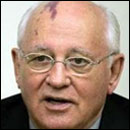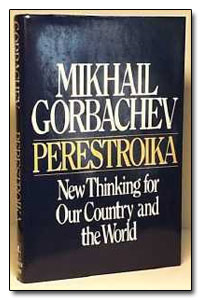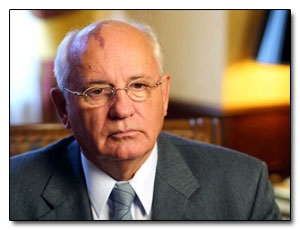5 Government Programs That Backfired Horrifically

Don't Miss
Sometimes government programs have good intentions and sometimes not. And sometimes they try shit just to see what happens.
Don't Miss
And while the history of governments doing grossly misguided things is too long and depressing to recount here, these five programs backfired in ways that could impress even the most pessimistic among us:
Prohibition Causes Horrific Violence, Drinking

Just typing this gives us the whiskey tremors, but here goes: For thirteen years, beginning in 1920, the sale of alcohol was banned in the United States. When the 18th Amendment was ratified in January of 1920, prohibition went into effect and began what would come to be described as "the bleakest time in American history" by that elderly, alcoholic relative we all have.

Hi, Uncle Rick!
Without the evils of alochol abuse, it was hoped that everything from unemployment to domestic violence would decrease dramatically. People would be free to focus their energy on other things like church, work, finances and, of course, smoking mountains of still-legal marijuana.
How It Backfired:
A wise man once said, "Here's to alcohol; the source of--and solution to--all of life's problems." He may not have realized it, but Homer Simpson's profound words on the subject perfectly sum up the problems with prohibition. Taking away booze didn't result in people not wanting to drink booze.

So wise.
Enter Al Capone, and the many, many guys like him who profited from smuggling newly illegal alcohol. Unfortunately for people who just wanted to buy and sell booze in peace, Capone gained control of Chicago's massive bootlegging and smuggling industry by way of a series of bloody gang wars.

At his peak, it's rumored Capone was bringing in close to $60,000,000 old timey dollars per year. That's money the government could have been taxing, which you'd have to think would have helped later during the Great Depression (we're just sayin').
As if the rising crime rate wasn't bad enough, some people suggest that alcohol consumption actually increased during prohibition. The problems caused by alcohol didn't go away, but taking alcohol away caused new, bigger problems. And the solution to those new problems? More alcohol. Just like Homer said.
Prohibition finally ended with the ratification of the 21st Amendment in 1935, and America learned a valuable lesson. Then marijuana was made illegal two years later.
Glasnost Kills the Soviet Union

We all know the horrors of the old Soviet Union, thanks to a series of stark portrayals of the regime in the 80s (such as Rocky IV and Red Heat).
Glasnost was supposed to help fix all that. This was Mikhail Gorbachev's policy of loosening media controls and restrictions on freedom of speech. The policy of openness was intended to put pressure on ruling conservatives within the Communist Party who opposed Gorbachev's policies on economic reform (known as Perestroika).

Wow, searching for images for Gorbachev's policy of economic reform is boring as shit.
His hope was that a noticeable decrease in government-issued savage beatings for people who read books would lead to open debate and, eventually, widespread acceptance of his reform policies.
Unfortunately for Gorbachev, all that reading led the Soviet people to but one conclusion: "Man, fuck a Soviet Union."
How It Backfired:

Google Image Search has, like, 900 fucking variations of this picture.
Soon, stories were popping up all over Russia about the incredibly shitty Soviet economic and social situation. It's one thing to know that standing in line for six hours to buy vodka and a gently used sweater is the norm in your little neck of the frigid Soviet woods. That just makes you want to move to a less shitty town. Knowing that those lines are just as long everywhere else and it's your government's fault? That makes a person want to get a new government.
Nationalists began winning elections in the U.S.S.R. and one by one, those republics declared their independence.

Not to distract any of you from the exciting world of Nationalist politics, but Booya!
The situation finally reached a tipping point when the Soviet Union unwisely decided to host a title bout for a certain Rocky Balboa. When the crowd saw Rocky's tenacity and can-do American attitude, they began to cheer for him, instead of the Soviet-sponsored Ivan Drago. Within a few short years, the Soviet Union was dissolved .
The Strategic Hamlet Profram Somehow Makes us Lose Vietnam Even More

We suppose on a list like this you could just put "Vietnam" and leave it at that. But of the several million things that went wrong in the course of that war, we think perhaps one was more retarded than the rest.
As you know from Apocalypse Now and, to a lesser extent, Platoon, one problem was that the regular farm folk who we were trying to liberate in South Vietnam, and the commie bad guys we were fighting, were often the same guys.
So we launched the Strategic Hamlet Program to try to separate the bad guys from the good, so we could then kill that first group. Makes sense.

The idea was to set up villages that would be provided with supplies and protection by the non-commie South Vietnam government. The rural folk would all move there and would be so grateful they would support the good guys. This was all based on the scientific principle that, "If you force millions of people to pack up their shit and move to a new place that they have to build themselves with a bunch of strangers, they will love you for it."
How could that shit not work?
How It Backfired:
These "hamlet" and "village" words don't really do this program justice. Protecting and supplying a couple of small towns would have been no big deal. But in all, the Strategic Hamlet Program ended up relocating 8.5 million people. The government had no ability to supply and protect that many. Basically, they had a plan in place to take control of the area, but no plan in place to tell them what to do when they took control.
Who does that?

We do!
With millions of newly pissed-off South Vietnamese villagers now condensed in small areas, the communist insurgents were able to come in and recruit support at an impressive rate. In some cases there were as many insurgent recruits inside the villages as there were outside.
This posed an all new problem for U.S. and South Vietnam forces. Take a look at these two pictures of people who, according to the professionals at ratethisasian.com, are both Vietnamese.

Would you be able to tell which one is the communist insurgent? Yeah, neither could we (although the sunflowers indicate possible hippie activity). At any rate, U.S. and South Vietnamese forces faced this same problem, albeit at a presumably much less sexy level, with the Strategic Hamlet Program. Ordinary non-combatant citizens were now living amongst just as many enemy fighters. And nobody could tell the difference.
The program was eventually disbanded in 1963. And we never ever made similar mistakes during a war ever again. The end.
The Enlarged Homestead Act of 1909 Unleashes Unimaginable Horror

The original Homestead Act of 1862 was, by all accounts, a huge success. It basically gave a plot of undeveloped land to anybody, as long as they promised to do something to improve it (such as open a titty bar or a brothel, perhaps).
But, just like the great movie that gets a shitty sequel, the government came out with the cleverly named Enlarged Homestead Act of 1909 and turned a huge chunk of the country into a living Hell.
How It Backfired:

The Act gave 320 acres to farmers willing to accept land that wasn't considered all that great for farming, due to a lack of water or whatever. This would have been a good place to put up those strip clubs, but instead, people tried to farm the land anyway. No big deal, right?
Well, that useless land they were trying to farm had previously been covered with grass. They plowed over it, leaving exposed soil that, over the years, became as dry and loose as an elderly prostitute. Eventually, winds kicked this dirt into the air.
Not only did all of this dust in the air exacerbate the drought conditions, it looked all manner of badass. No matter how rugged your grandfather was, he probably shit his depression-era burlap pants when he saw this coming...

Not pictured: Satan
Take the above, imagine it happening for ten straight years, and you have the screaming horror that came to be known as the Dust Bowl.
Think we're exaggerating? Consider the side effects. For one, the drought led to an explosion in centipede, black widow and tarantula populations. This was at a time when homes on the prairie were basically wood shacks. Shacks with gaps in the wall. Gaps that fucking tarantulas could fit through. Lots of them. If you woke up with a furry spider the size of your fist relaxing on your pillow waiting to impose its will on you, chances are you'd die of a heart attack before it ever struck.

Imagine waking up knowing there were dozens of them bitches in your house. Every day. Not even the jackrabbits in the yard could stop them from coming in. That's right, there was a plague of jackrabbits also. While this most certainly made for the most adorable plague ever, they devoured everything in their path, which wasn't much to begin with.
It was the last thing already struggling farmers needed. It would have driven them to drink, only that Prohibition thing was still going on for most of it. Oh, and the Great Depression.
What could be worse? Just wait...
China's Great Leap Forward Kills Basically Everyone

There are a lot of fucking people in China. So the idea of using that immense population to help convert mainland China into a more modern, productive society wasn't a bad idea at all. This would mark the first and last decent idea employed during China's Great Leap Forward, a gargantuan clusterfuck which lasted five years starting in 1958.
How It Backfired:
It would be a lot easier to just tell you the ways this shit didn't backfire. That would be none. For instance, one part involved taking all of those peasant farmers and setting them to making steel. In their backyards. Instead of farming.

"What the hell am I doing?"
Have you ever tried to make steel at home? Does that seem like a retardedly impossible thing to do? Congratulations, you are smarter than Chairman Mao.
But perhaps the best example of Great Leap Forward idiocy was the Great Sparrow Campaign. One of the goals of the Great Leap Forward was to rid the country of "the four great pests." That would be rats, flies, mosquitoes and...sparrows? Fucking cockroaches get a pass?

Look at this dipshit.
At any rate, adorably primitive steps were taken to rid the country of the dreaded sparrow, including villagers shooing them away using pots and pans. The reason for this, according to the people behind the plan, was because sparrows fed on seeds, thereby negatively affecting harvests. Unfortunately, the sparrow experts failed to inform the Chinese government that sparrows also ate locusts. So many of them, in fact, that the sparrows were the only thing between China and a full-on Biblical locust plague. With the sparrows finally gone, the locusts swept in.

Remaining harvest levels (meaning the amount the government didn't seize) were already ridiculously low, thanks partly to millions of able-bodied farmers staring confusedly at steel furnaces bellowing smoke in their backyards instead of farming. What crops were left were promptly devoured by an army of locusts.
So the government got their cut of the grain, the locusts got theirs...and about 38 million Chinese citizens got nothing. In the name of not completely bumming you out for the rest of the day, we'll leave the next few years to your imagination.
More from Adam can be found at ScenicAnemia.com
For other expensive disasters, check out Adam's look at 5 Tiny Mistakes That Led To Huge Catastrophes or his investigative report about The Awful Truth Behind 5 Items Probably On Your Grocery List. Or, visit the Cracked.com Top Picks to see what we're looking at instead of working.